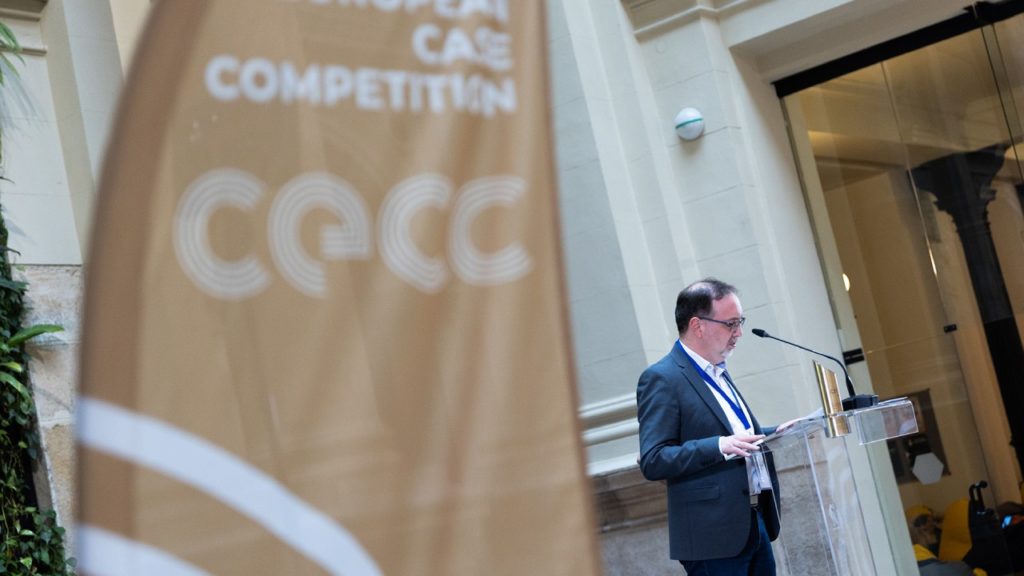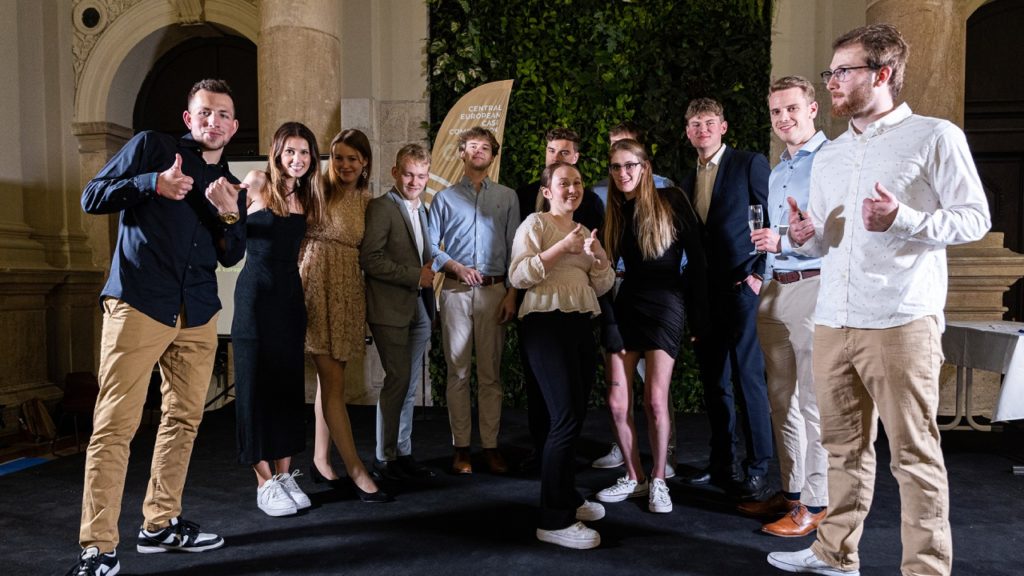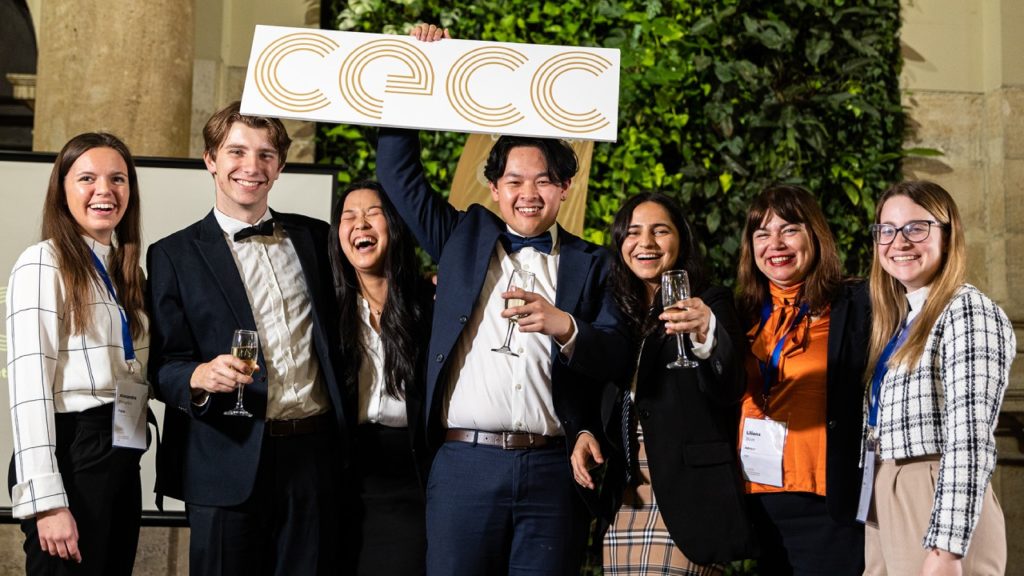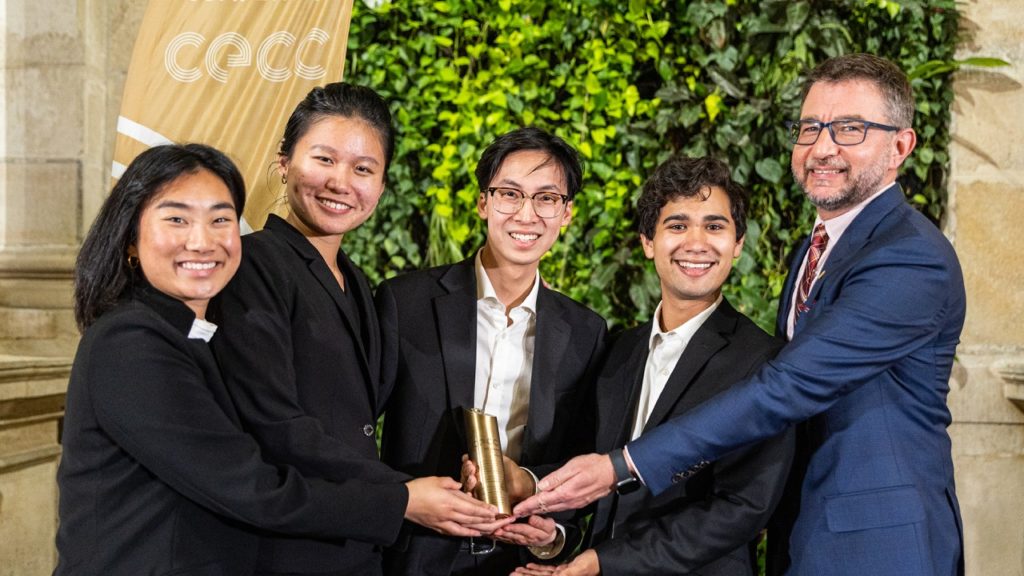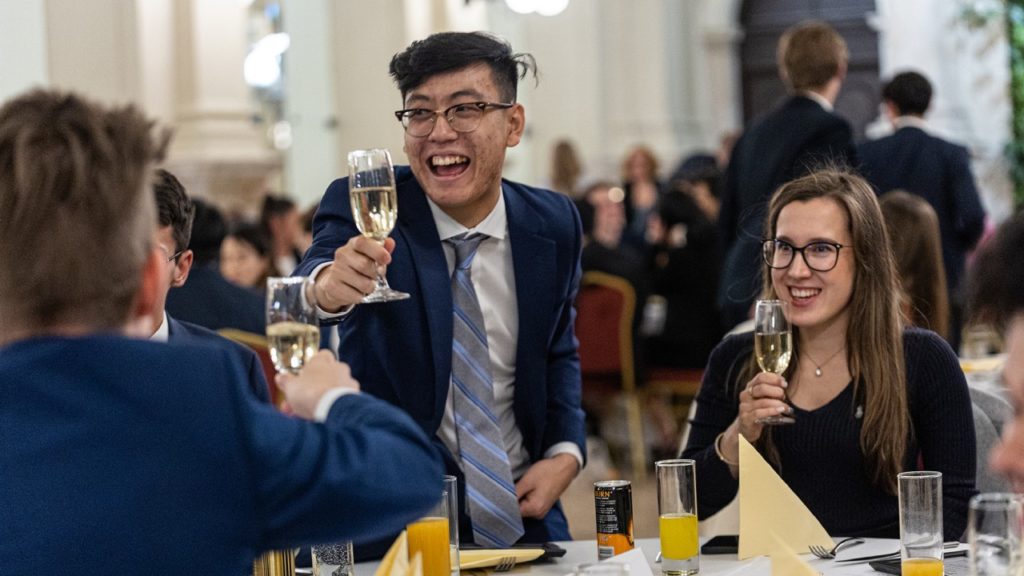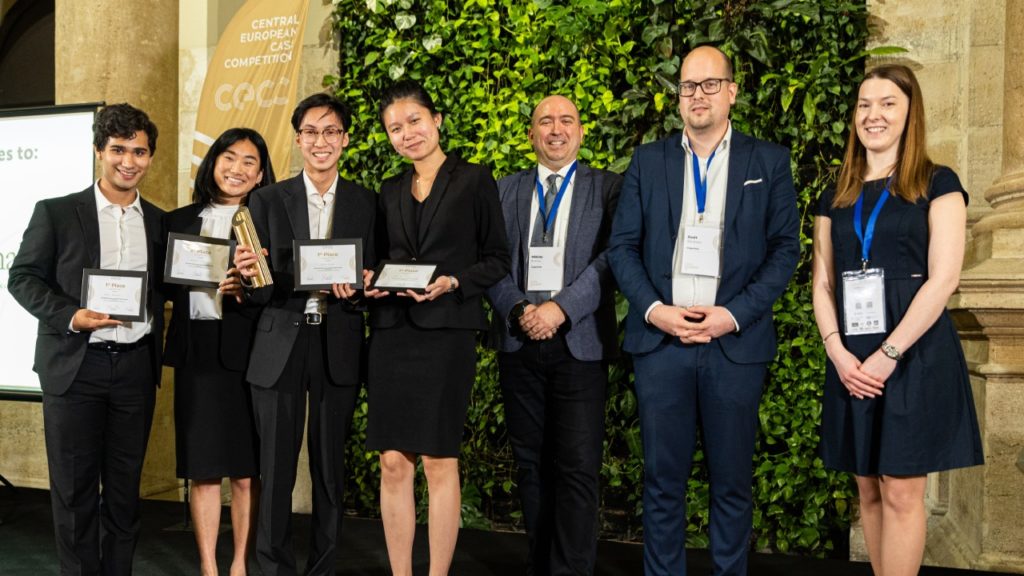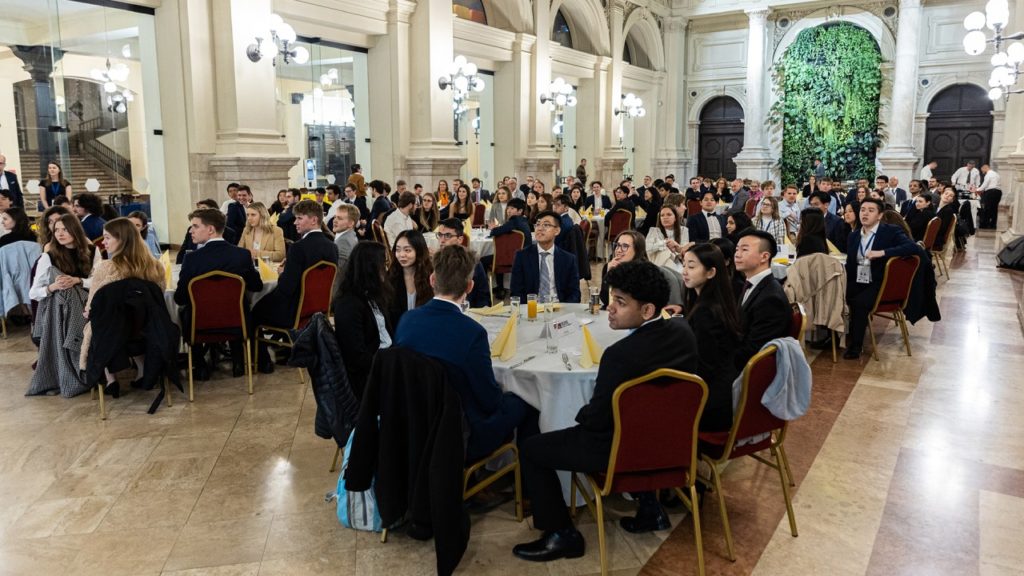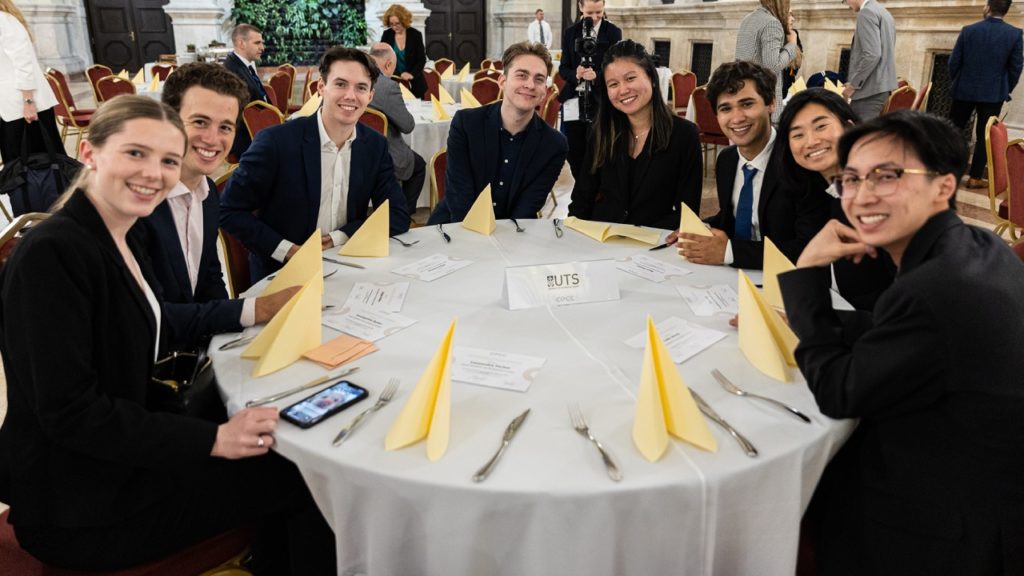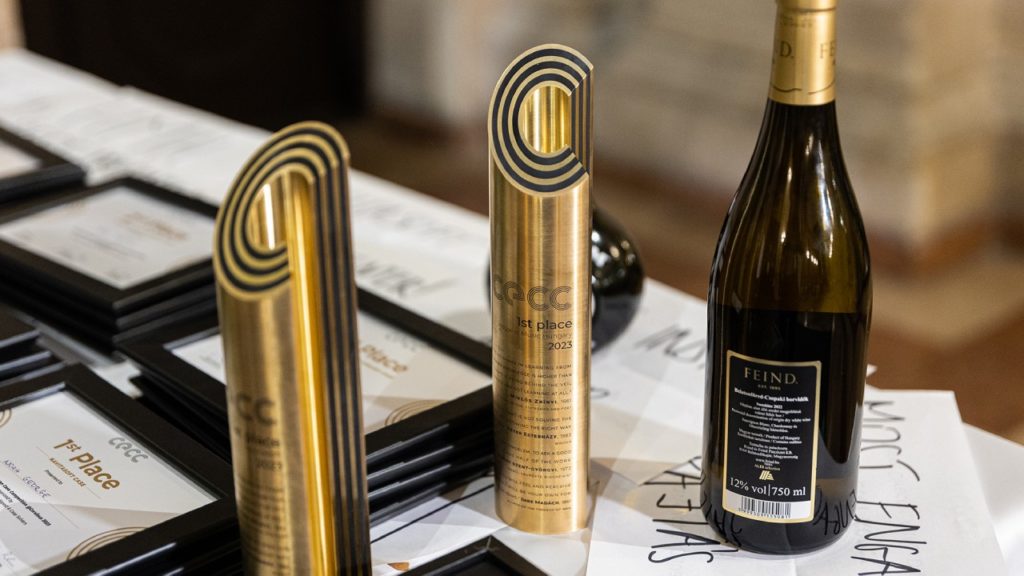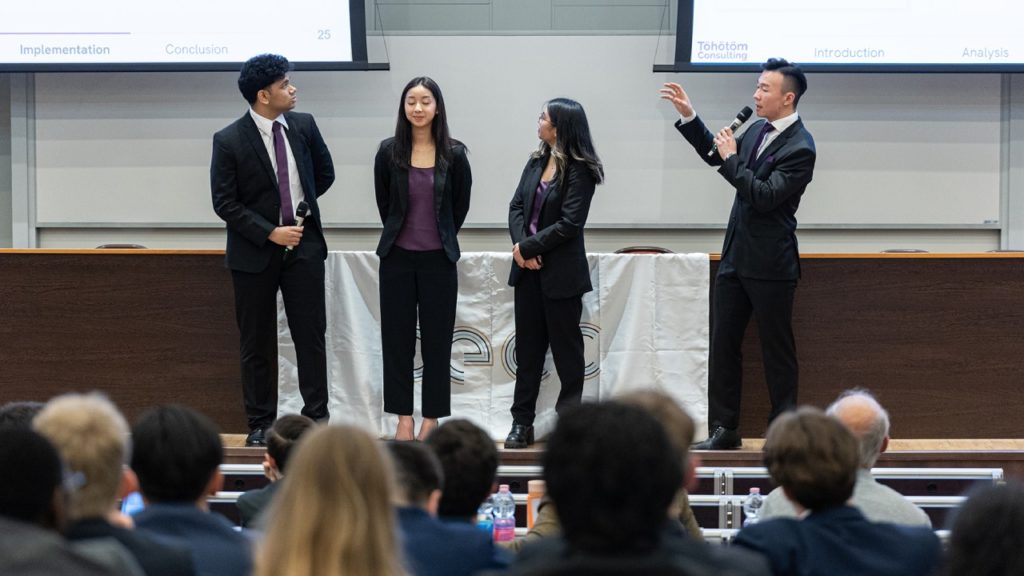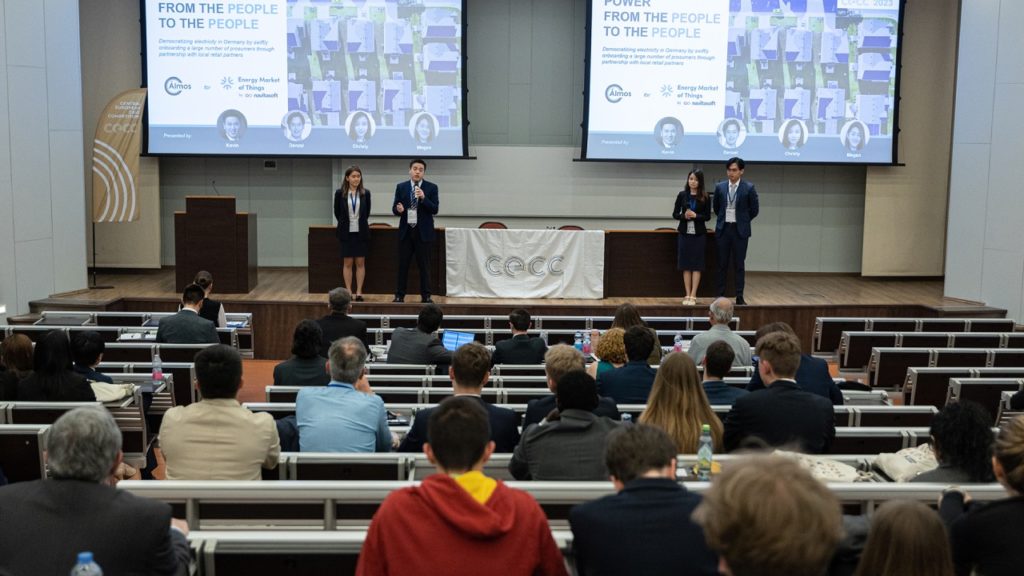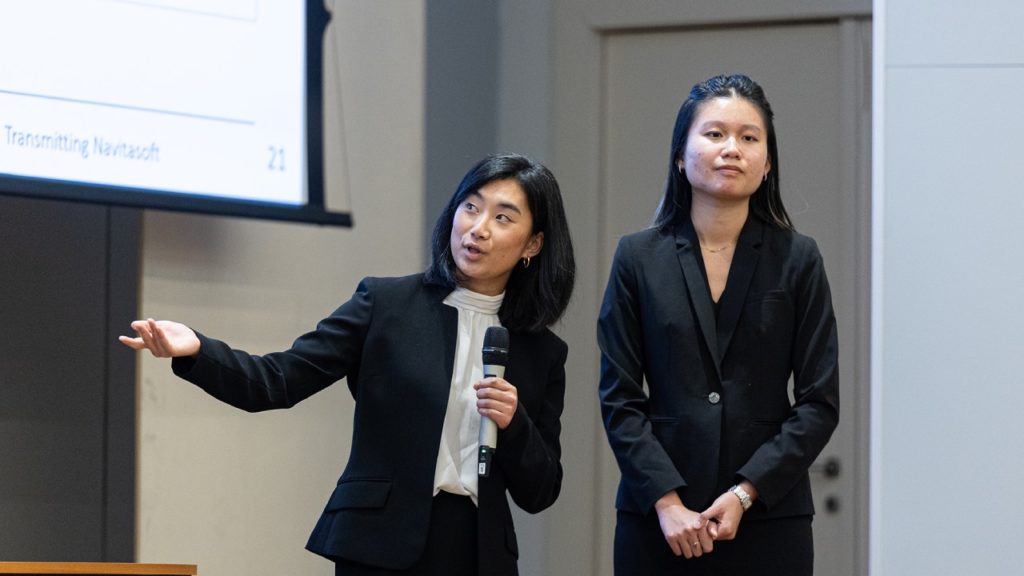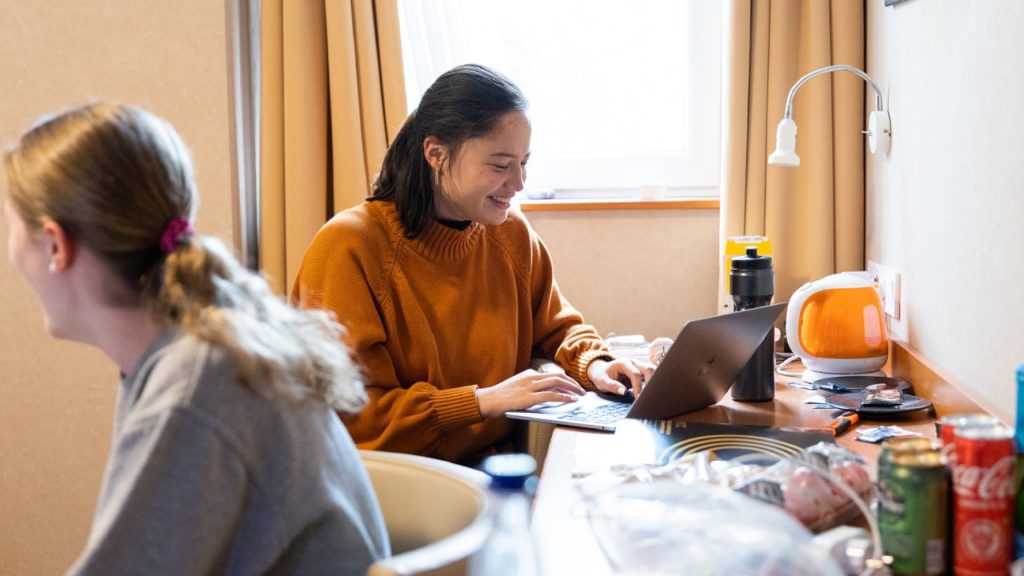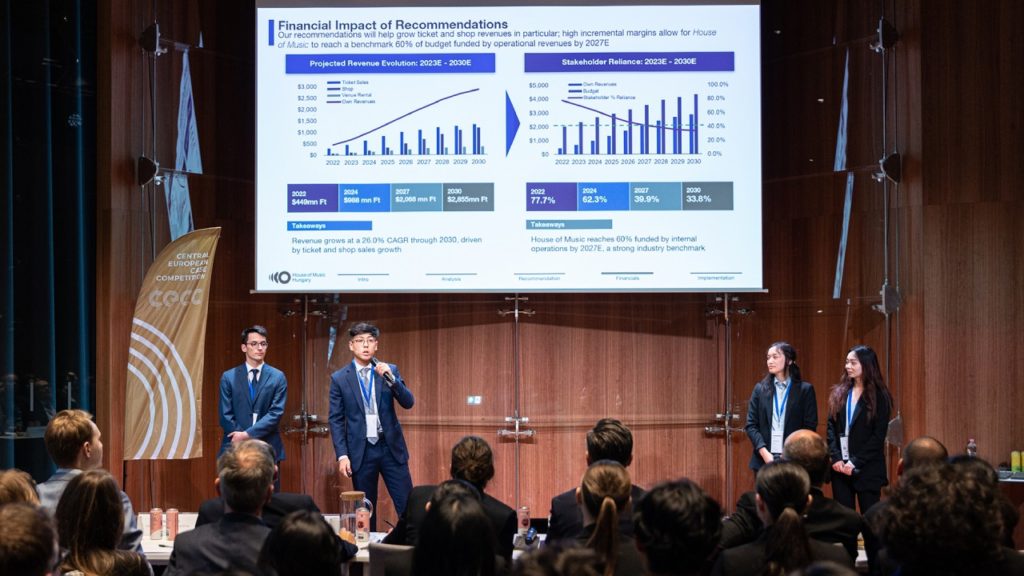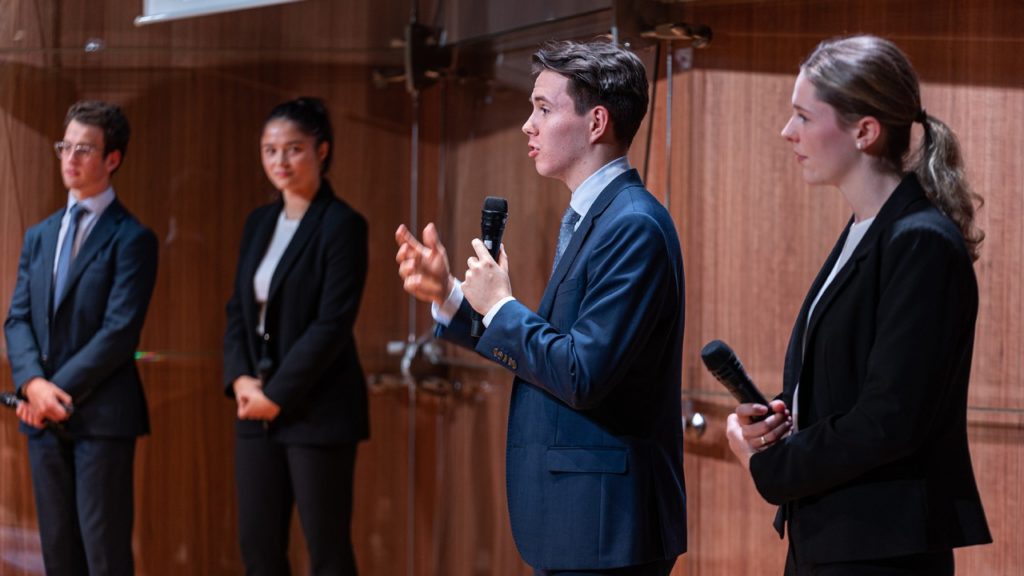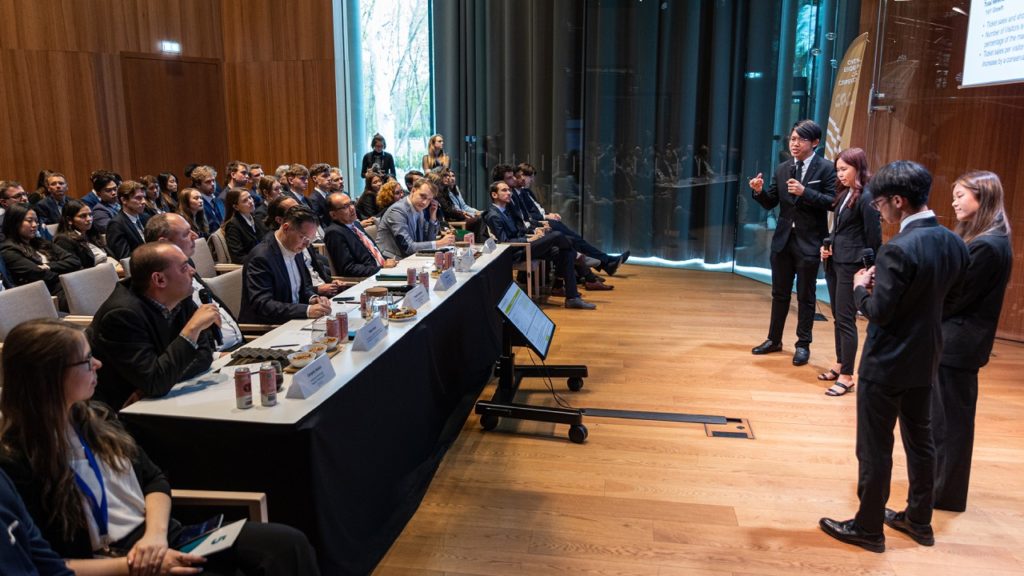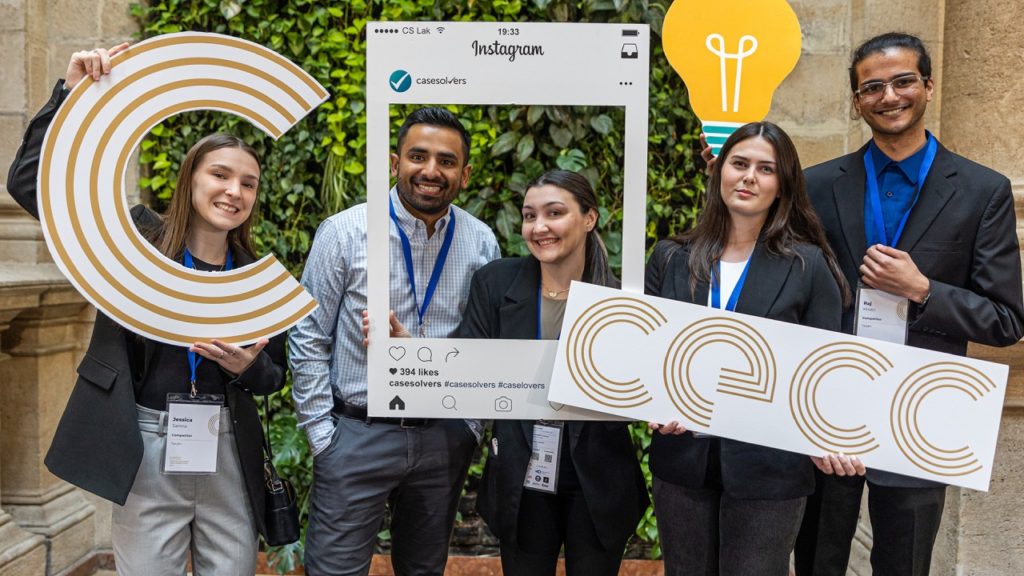Teams from prestigious business schools competed in The Central European Case Competition
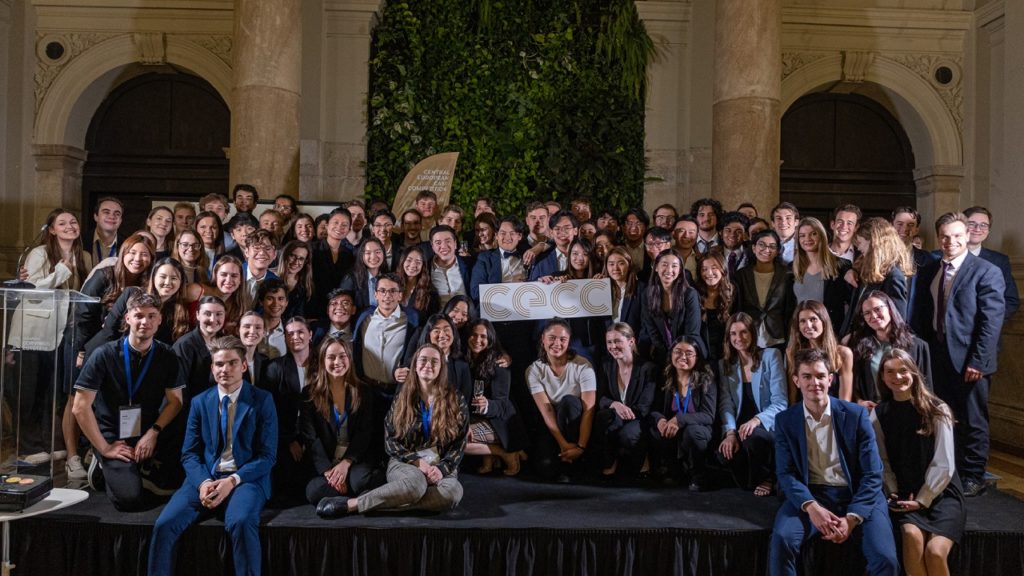
Case Solvers and Corvinus University of Budapest organized the Central European Case Competition international case study competition for the 5th time, in which 16 teams competed for first place. Participating teams had to solve two real business case studies in 5 and 24 hours. The trophy for the 5-hour case study on the House of Music Hungary was won by the Canadian Ivey Business School, while the first prize for the 24-hour Navitasoft case went to the team from the American University of Southern California.
The Central European Case Competition is one of the largest business case study competitions in Central Europe, to which 16 teams from prestigious business schools with a long tradition of case-solving have been invited. This year, students came from 8 countries, from Australia to China to the United States. During the competition, the teams of 4 had to solve 2 case studies and present them to the professional jury.
The aim of the House of Music Hungary is to popularize music widely in Hungary. The case study solved by the students was also related to this mission, as they had to answer questions such as how to organize high-quality, sold-out programs with affordable ticket prices while keeping social goals in mind. What sustainable financing model should House of Music Hungary move towards while meeting the aforementioned goals? What market-type sources of income can the House of Music Hungary create, so that the social mission is not harmed? The international teams presented beautifully and logically structured solutions to the professional jury, and several teams performed international comparisons and analyses and reviewed the operation of renowned cultural institutions such as the Sydney Opera House, the Louvre, or the Tate Modern. The solutions proposed by the teams affected the area of high-quality extended, gamified education, online and offline music programs.
The 24-hour case of the Central European Case Competition was about Navitasoft’s newest platform, the so-called Energy Market of Things platform. When solving the case, the teams had to answer three key questions: First, how can the company enter the German market, and what segment and devices should it target when entering the market? On the other hand, what is the right business model for the platform to build its future growth on? Finally, how should the company address users and what should the user onboarding process look like? The teams focused on partnerships and consumer education.
This year’s CECC is the first in-person international case study competition in Hungary after a long time. Hungarian teams – including the Corvinus University of Budapest – have been participating in similar international competitions for more than two decades. Case Solvers (www.case-solvers.com) is a startup company based in Budapest, that focuses on skill development and measurement through the case method. In the past 10 years, they trained talented students and employees in 33 countries using the case method.
